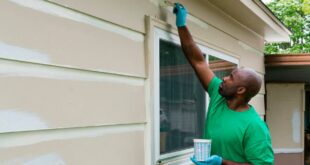When deciding between buying a home and renting, it’s essential to consider your financial situation, lifestyle preferences, and long-term goals. Here’s a detailed comparison to help guide your decision:
1. Financial Commitment ─ Mortgages vs. Rent
Buying a home usually requires a significant upfront financial commitment, including a down payment, closing costs, and ongoing expenses like property taxes and maintenance – you might need to consider financial support, from bridging loans to mortgages.
On the other hand, renting typically involves a security deposit and monthly rent payments, which can be less burdensome upfront.
Homeownership offers the potential for equity growth and can be a long-term investment, but it also comes with the responsibility of property maintenance and repair costs. Renting offers more flexibility, as it doesn’t tie you down to a long-term financial commitment and often includes maintenance covered by the landlord.
Consider your current financial stability, future income prospects, and comfort level with long-term financial obligations.
2. Flexibility and Mobility ─ Settling Down vs. Staying Agile

Owning a home often means settling down in one location for an extended period, which can be ideal for those seeking stability and a sense of community.
However, it can limit your mobility for job opportunities or life changes. Renting, in contrast, offers more flexibility. Lease terms are typically shorter than mortgage commitments, allowing renters to move with relative ease.
This flexibility can be especially advantageous for those in transitional life stages or careers that may require frequent relocation. Consider your career trajectory, family plans, and lifestyle preferences when weighing these options.
3. Customization and Control ─ Personalizing Your Space
Homeownership allows you to personalize your living space extensively. You can remodel, decorate, and make changes without needing a landlord’s approval. This freedom can lead to a deeper sense of personal satisfaction and comfort.
However, it also means you’re responsible for all repairs and maintenance. Renting provides less opportunity for customization, as changes often require landlord approval and might need to be undone when moving out.
For those who value the ability to personalize their living space extensively, homeownership might be more appealing. Evaluate how important this aspect of living is to you.
4. Long-Term Financial Prospects ─ Building Equity vs. Investing Elsewhere

Buying a home can be a significant part of your investment portfolio. Over time, you build equity in the property, especially in a market with rising home values. This equity can be beneficial for future financial goals.
However, it’s also important to consider the real estate market’s volatility and the potential for periods of depreciation. Renters don’t build equity in a property, but they may have more cash flow available to invest in other ventures or savings, potentially offering greater liquidity and diversification.
Consider your long-term financial goals and investment strategies when making this decision.
5. Stability vs. Uncertainty ─ Predictability in Costs
Homeownership provides a level of predictability in expenses, especially with a fixed-rate mortgage where your principal and interest payments remain constant.
Property taxes and maintenance costs can fluctuate, but overall, homeowners have a clearer picture of their long-term financial commitments. This stability can be comforting and beneficial for long-term budgeting.
On the other hand, renting can sometimes be less predictable. While you know your rent amount for the lease term, rent can increase when you renew, subject to market conditions and landlord decisions.
Additionally, renters may face uncertainty regarding lease renewals and potential moves. Consider how much you value financial predictability and stability in your living situation.
 Hi Boox Popular Magazine 2024
Hi Boox Popular Magazine 2024



